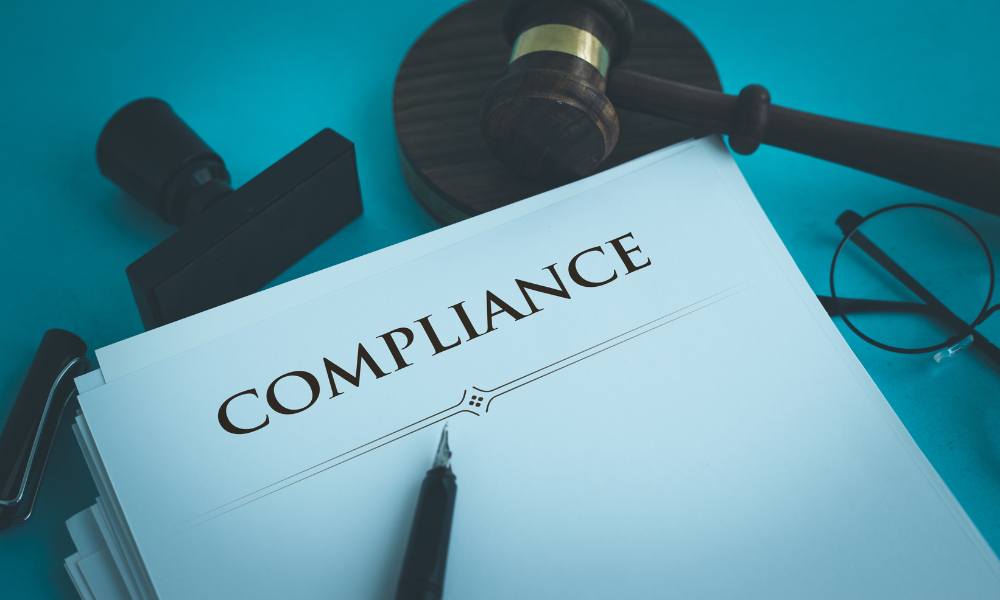
In today's fast-paced business environment, the importance of compliance cannot be overstated. The regulatory landscape is constantly evolving, presenting challenges that require businesses to adapt swiftly to stay ahead.
This article explores why compliance is now more essential than ever, delving into the shifting regulatory paradigm, challenges faced by businesses, consequences of non-compliance, the role of technology, building a culture of compliance, and the future of compliance. Additionally, we address the keyword, How To Build Wealth Without Paying Taxes. Join us in unraveling the intricate relationship between compliance in the business world and wealth building, providing insights into navigating both realms successfully.
Gone are the days when compliance was a mere checkbox activity. The regulatory paradigm is shifting towards a more dynamic and comprehensive approach. Businesses now face a myriad of regulations from different jurisdictions, making compliance a complex and multifaceted task.
Globalization has interconnected economies, leading to a web of regulations that transcend borders. Businesses operating on a global scale must navigate through diverse regulatory frameworks, requiring a nuanced understanding to ensure adherence.
The complexity of regulatory frameworks poses a significant challenge for businesses. Understanding and adhering to various regulations demand a strategic approach and a robust compliance management system.
As technology advances, so do the challenges related to compliance. The rapid pace of innovation introduces new complexities, such as cybersecurity concerns and the need for updated compliance measures.
With the increasing focus on data privacy, businesses must navigate through stringent regulations to protect customer information. Non-compliance can lead to severe consequences, including legal actions and reputational damage.
Failure to comply with regulations can result in legal consequences. Fines, penalties, and legal actions can have a significant impact on a company's financial health and reputation.
In the age of social media and instant communication, reputational damage spreads like wildfire. Non-compliance incidents can tarnish a company's image, eroding trust among stakeholders and customers.
The financial implications of non-compliance extend beyond fines. Legal battles, operational disruptions, and loss of business opportunities can lead to long-term financial repercussions.
Artificial Intelligence (AI) plays a crucial role in automating compliance processes. Machine learning algorithms can analyze vast amounts of data, ensuring timely adherence to evolving regulations.
Blockchain technology provides a transparent and immutable record of transactions, enhancing trust in business operations. Implementing blockchain solutions can streamline compliance and reduce the risk of fraud.
Cloud-based compliance management systems offer scalability and flexibility. These systems enable businesses to centralize compliance efforts, ensuring consistency across different departments and locations.
Creating a culture of compliance starts at the top. Leadership commitment to ethical practices and compliance sets the tone for the entire organization.
Employees are the frontline of compliance. Providing comprehensive training and fostering awareness among employees are critical steps in building a culture where compliance is ingrained in every action.
Staying ahead of regulatory changes is crucial for businesses. Proactive monitoring and adapting to emerging trends ensure that compliance measures remain effective in the face of evolving regulations.
Rather than reactive approaches, businesses should adopt proactive compliance strategies. This involves anticipating future regulatory requirements and implementing measures to meet them.
In conclusion, compliance is no longer a checkbox; it is a dynamic process integral to the success and sustainability of businesses.
Navigating the complex regulatory landscape, leveraging technology, and building a culture of compliance is essential for not only avoiding legal consequences but also for maintaining trust and credibility in the eyes of stakeholders.
What is compliance automation, and how does it benefit businesses?
Compliance automation involves using technology, such as AI, to streamline and optimize compliance processes. It benefits businesses by ensuring timely adherence to regulations, reducing the risk of human error, and enhancing overall efficiency.
How can businesses stay informed about changing regulations?
Businesses can stay informed by actively monitoring regulatory updates, participating in industry forums, and leveraging technology solutions that provide real-time information on regulatory changes.
Why is data privacy a significant concern in compliance?
Data privacy is crucial in compliance because regulations often require businesses to protect sensitive customer information. Non-compliance can lead to legal consequences and reputational damage.
What role does leadership play in building a culture of compliance?
Leadership sets the tone for the entire organization. Commitment to ethical practices and compliance from leadership fosters a culture where employees prioritize and adhere to compliance standards.
How can businesses proactively prepare for future regulatory changes?
Businesses can proactively prepare by regularly reviewing and updating compliance policies, staying informed about industry trends, and engaging in ongoing training to ensure employees are aware of evolving regulations.